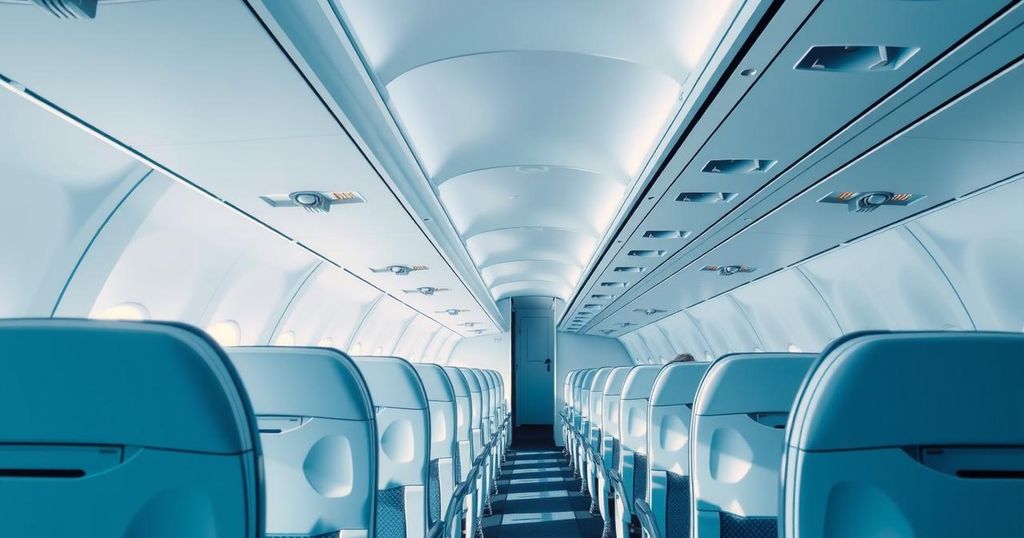Trump Administration Launches First Self-Deportation Flight for Immigrants

The Trump administration has executed its first self-deportation flight, returning 68 migrants to Honduras and Colombia. While offering $1,000 in financial aid, experts are skeptical about the program’s demand as many migrants may not opt for self-deportation amid an increasingly hostile environment in the U.S.
In a significant move by the Trump administration, the first repatriation flight carrying 68 migrants departed recently. This operation was described as a voluntary self-deportation effort, with the migrants flown back to San Pedro Sula in Honduras and Colombia on Monday. This flight marks a notable policy shift, aiming to facilitate voluntary returns for those looking to leave the U.S. ahead of potential deportations.
Among those returning were 38 Hondurans, including 19 minors who received $1,000 debit cards from the U.S. government. This financial incentive is intended to encourage individuals to choose to return to their home countries. Moreover, the migrants can apply for legal re-entry into the U.S. should they decide to return in the future, a step that President Trump emphasized during his campaign.
Experts have expressed skepticism regarding the uptake of this self-deportation offer, suggesting that it will likely appeal only to a limited segment of migrants already contemplating return. Various factors, including recent high-profile detentions and a crackdown on Venezuelan migrants, cast a shadow over the program’s anticipated popularity.
One participant in the program, Kevin Antonio Posadas, who resided in Houston for three years, shared his experience. Having contemplated returning home before this initiative, he said, “I wanted to see my family and my mom.” Posadas reported a relatively smooth application process through the CBP Home app, enabling him to book the flight within three days. He finds the initiative beneficial, stating, “It’s good because you save the cost of the flight.”
Homeland Security Secretary Kristi Noem announced the flight, urging those living in the U.S. without documents to utilize the app for their voluntary departure. She warned potential beneficiaries, saying that those who do not take advantage could face serious consequences, including arrest or deportation.
In total, the deportation flight included 26 migrants returning to Colombia. Honduran Deputy Foreign Minister Antonio Garcia provided further details regarding the assistance these returnees would receive, including $100 in cash and a $200 credit at a government-run store. Notably, some of the returning children had been born in the U.S.
After meeting with those who arrived in Honduras, Garcia noted their reported struggles in the U.S. as undocumented individuals, mentioning an increasingly hostile environment that has made working more challenging. Wilson Paz, the director of migration services in Honduras, remarked on the decrease in Honduran returnees compared to previous years, with 13,500 deported in 2023 versus over 15,000 at the same point last year.
Paz concluded with a note of caution, predicting a limited response to the self-deportation program, emphasizing that orderly returns are necessary, highlighting the government’s commitment to support those returning to Honduras.
The Associated Press has contributed to this report.
In summary, the Trump administration’s inaugural self-deportation flight involved sending 68 migrants back to Honduras and Colombia, igniting mixed reactions among experts. While financial incentives are being promoted to ease the return process, demand appears limited. Many migrants, like Kevin Antonio Posadas, appreciate the option, albeit concerns about the legal context persist. The Honduran government is preparing to support repatriates while monitoring the overall impact of this new policy.
Original Source: www.independent.co.uk








